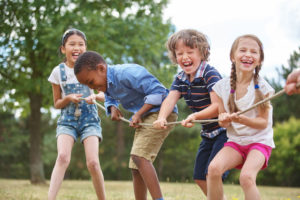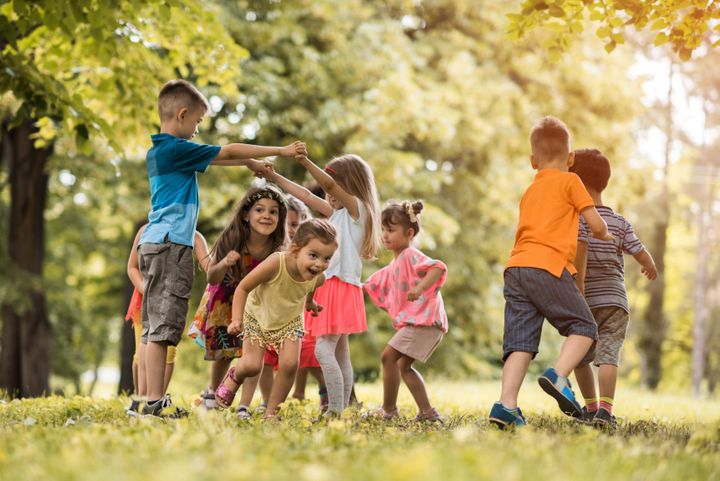Play for many can be defined as a period in which imaginative, relaxing, and self-directed activities occur. Play allows us to step in to a space where we are allowed to dance between the spaces of real life and alternate realities. This access to play and being able to dance within these different spaces can help children and adults to discover the world while learning the inner and outer parts of ourselves. Play serves as an important component to a child’s growth and development by teaching children to be confident with their independence from parents and adults. It also allows kids to gain control of their own space, and be free to test different emotional scenarios, without the fear of getting in trouble.
 In the face of the pandemic and uncertain times, too many structured days, loss of outdoor activities, too muchscreen time, and an overwhelming amount of pressures at school, this tradition of play seems to fade away. These difficult moments cause kids to develop a lack of motivation to engage with their creative side; which can cause profound effects in the future. Some of these effects may include unwanted stress and potential trauma. With this in mind, when our children are faced with stress and/or potential traumas it can be easier to recognize the benefits play can bring about. Play can help foster our children’s relationship with themselves and others. It helps to relieve stress and encourages overall wellness. Play allows our children to construct their own ideas regarding feelings of creativity, compassion, and empathy. Play can help reengage them in to uncomfortable feelings, without it feeling so uncomfortable.
In the face of the pandemic and uncertain times, too many structured days, loss of outdoor activities, too muchscreen time, and an overwhelming amount of pressures at school, this tradition of play seems to fade away. These difficult moments cause kids to develop a lack of motivation to engage with their creative side; which can cause profound effects in the future. Some of these effects may include unwanted stress and potential trauma. With this in mind, when our children are faced with stress and/or potential traumas it can be easier to recognize the benefits play can bring about. Play can help foster our children’s relationship with themselves and others. It helps to relieve stress and encourages overall wellness. Play allows our children to construct their own ideas regarding feelings of creativity, compassion, and empathy. Play can help reengage them in to uncomfortable feelings, without it feeling so uncomfortable.
So What Can Children Learn Through Play
- It helps place skills in their toolbox both physically, mentally, emotionally, and even spiritually.

- It offers a means to relieve stress, and is a natural occurrence that allows children to work through their anxieties and fears.
- Play offers kids the opportunity to explore and learn how to regulate their own feelings, test out new ideas, and make connections with many different experiences and adventures.
- The moments where play can be incorporated without the need to be prompted helps promote kids to take risks whether be a new toy, unfamiliar places, or even baking with new ingredients. The unknowing experience helps our kids to become more mentally malleable.
- Lastly, the process of play helps kids to practice and become more mindful, safe, & connected to work on things that may seem hard.
Having worked with children and adolescents for many years now has provided me the opportunity to really engage them through a creative lens that meets the child where he or she is. It also helps that we are utilizing their language, which is play! It’s like the infamous quote by Garry Landreth, “Toys are children’s words, and play is their language.” Kids that have come in to my office have shown that they are able to express themselves through the play and art that we do, so that it does not necessarily need to be verbalized if they are feeling scared, nervous, or even worried about finding the right words.
A lot of parents reading this may ask, “Well can I just play with my kid at home.”
Yes of course! I highly recommend it … and I would also recommend a good therapist as well, who can hold the space for children to help them recognize themes in play, help educate the kids on regulating emotions, and also mindfulness exercises as well. I want to encourage and welcome parents and children in to this space & journey of play here at The Center, so that we may grow together throughout this process.
Let us know if you’d like to work with one of our family therapists, mindfulness coaches, or psychotherapists today.

